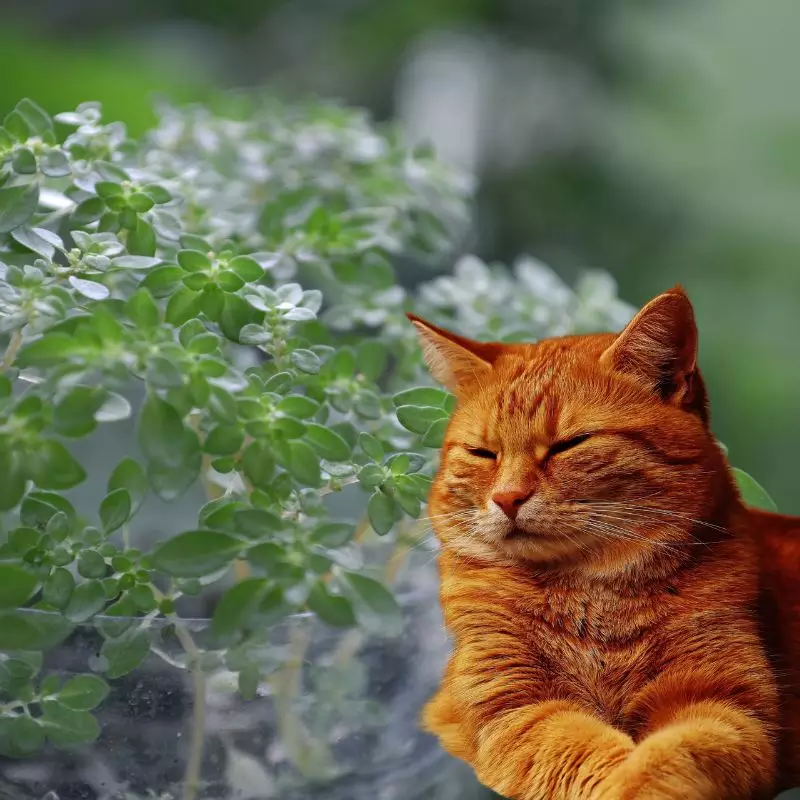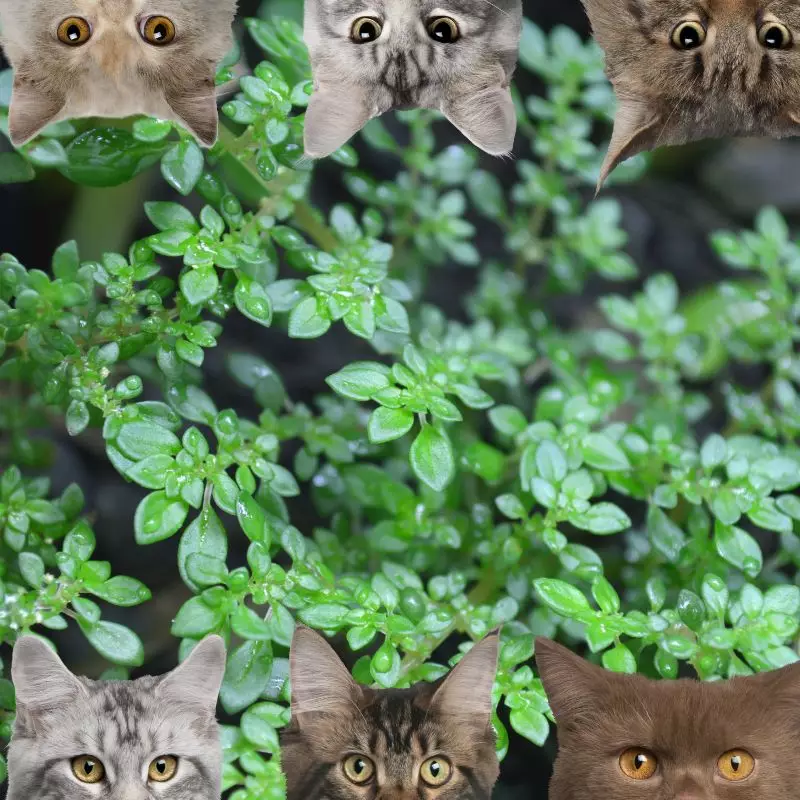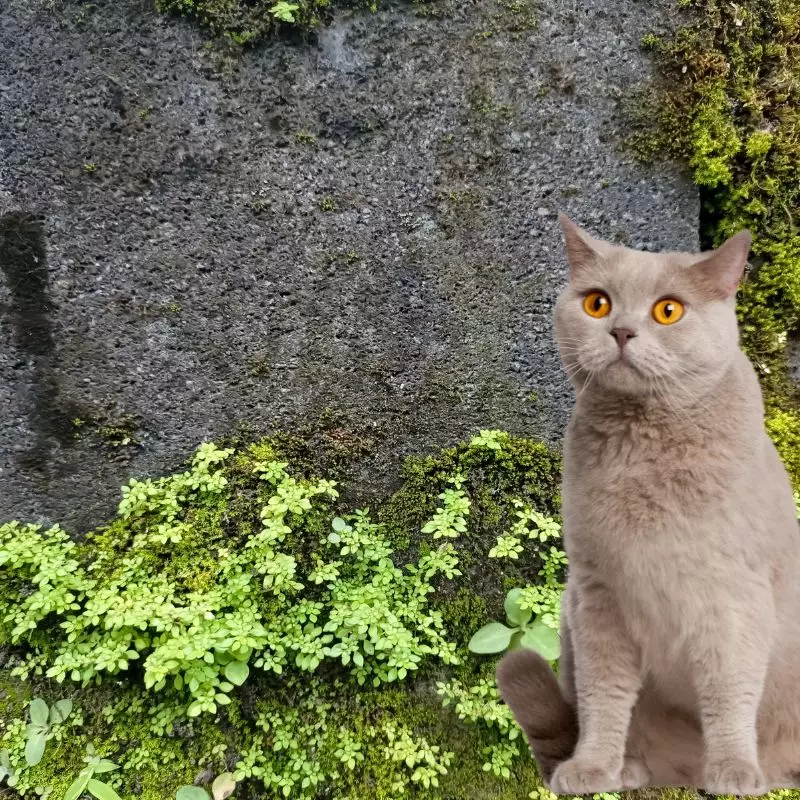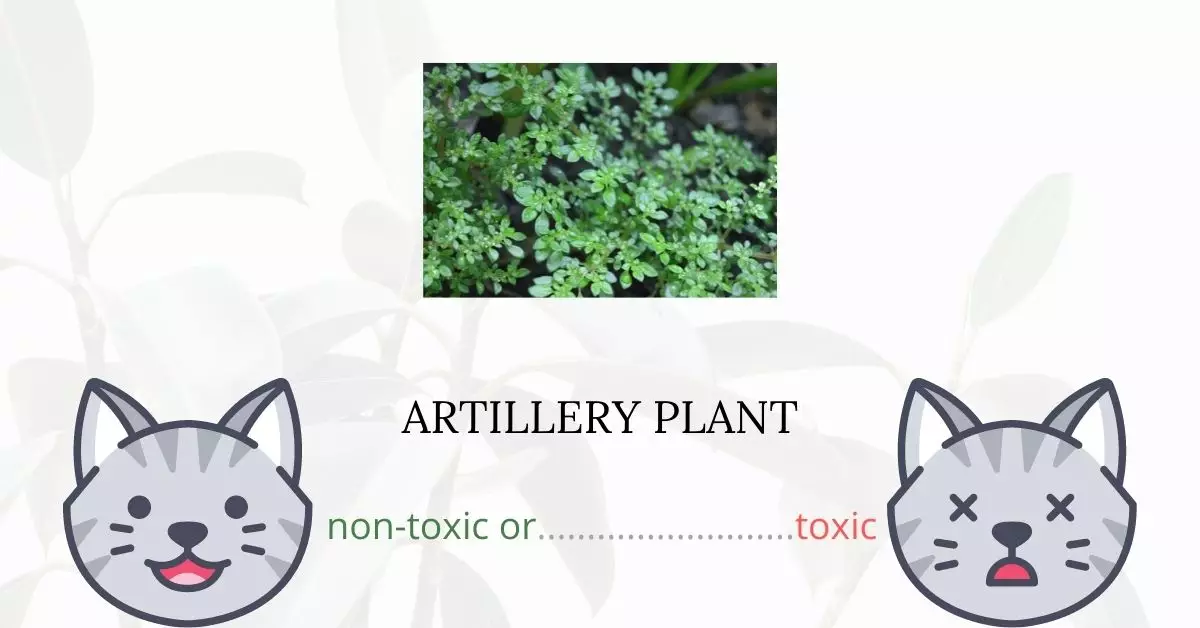The Artillery Plant is deemed safe and non-toxic for cats. This is validated by the American Society for the Prevention of Cruelty to Animals (ASPCA) Poison Control Center, which also declares it harmless to dogs and horses. While artillery plants pose no inherent risk to cats, it remains crucial for cat owners to be vigilant if and when their feline friends show an interest in consuming plants.
This article has been meticulously crafted in collaboration with a team of seasoned Doctors of Veterinary Medicine (DVMs) whose valuable insights enable us to deliver precise and current information about the potential hazards posed by different plants, focusing on the Artillery Plant in this instance, and their impact on cats. Our in-depth research also incorporates data gleaned from high-authority sources such as ASPCA and PetMD, ensuring that each plant discussed is thoroughly investigated.
Can Cats Eat Artillery Plant?

Cats are known to be inquisitive, therefore they are known to nibble on plants on occasion. There is no need to be concerned if your cat nibbled and chewed on a portion of artillery plant.
Although artillery plants may not pose a threat to cats, any chemicals used on the plant, such as fertilizers, herbicides, and insecticides, can. A small quantity of fertilizer or other chemicals applied to indoor plants may leave residue on the leaves. If your cat consumes these chemicals through the artillery plant, he or she may become ill.
What is Artillery Plant?

Pilea microphylla is an annual plant native to Florida, Mexico, the West Indies, and South America. It is also known as angeloweed, artillery plant, and joy powder plant. The plant is a member of the Urticaceae family. It is planted as a ground cover in many locations because of its light green, almost succulent stems and small 1/8″ leaves, which lend to its other moniker, “Artillery Fern,” despite the fact that it is not related to ferns.
The artillery plant thrives in humid conditions. Leaf spots and stem rot can develop on occasion, and spider mites and mealybugs could attack. Indoor plants do not often produce blooms or fruits. Propagation is usually done through stem cuttings. The male flower releases pollen with explosive power, earning it the nickname “Artillery Plant.”
Keeping Cats Away From Artillery Plant

Since plants aren’t normally a part of a cat’s diet, it’s best not to give your cat a piece of Artillery plant. Cats are carnivorous creatures. Carnivorous animals lack the enzymes required to assimilate and digest the plant food in their stomachs.
Plants to Avoid For Your Cats
If you are a cat owner and unsure if the plants growing in your yard are harmful to your cats, check out this list of toxic plants for cats. You can also check our list of non-toxic plants for cats.





